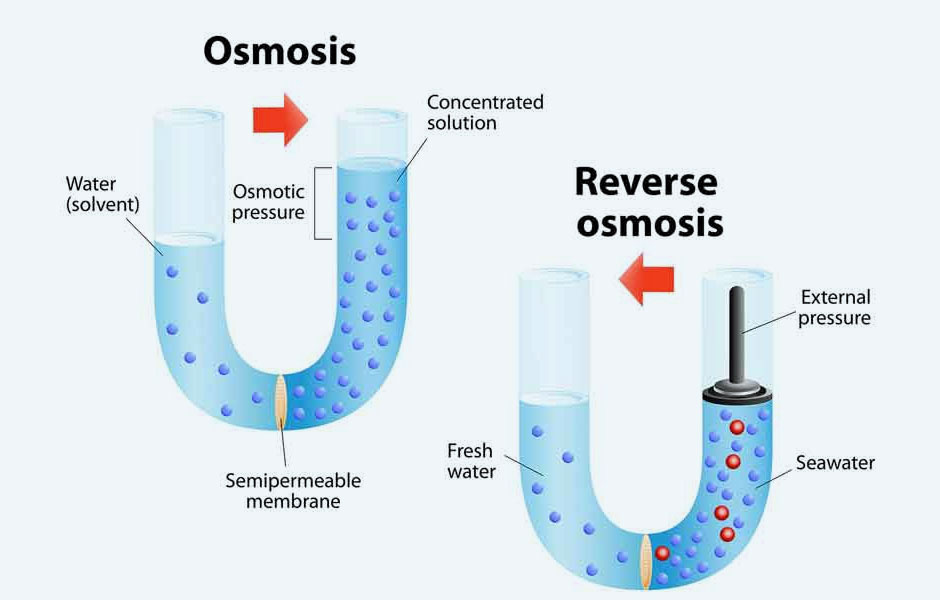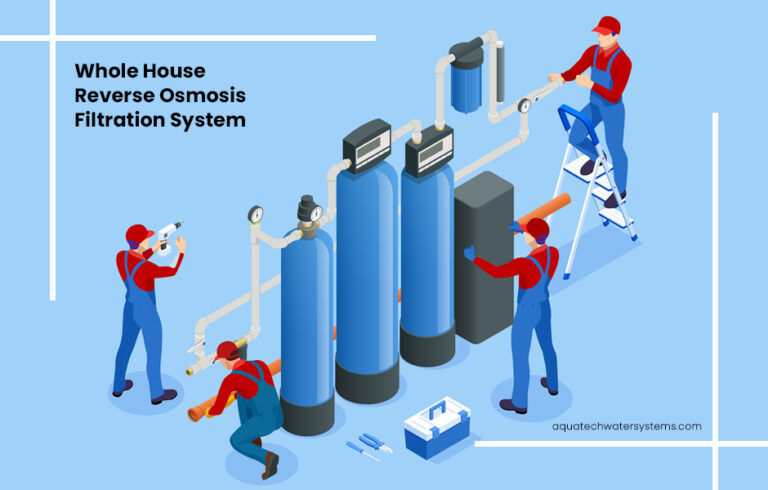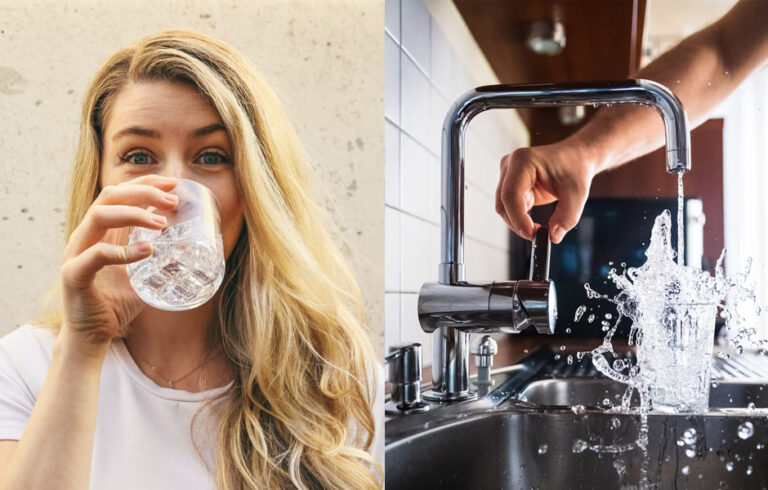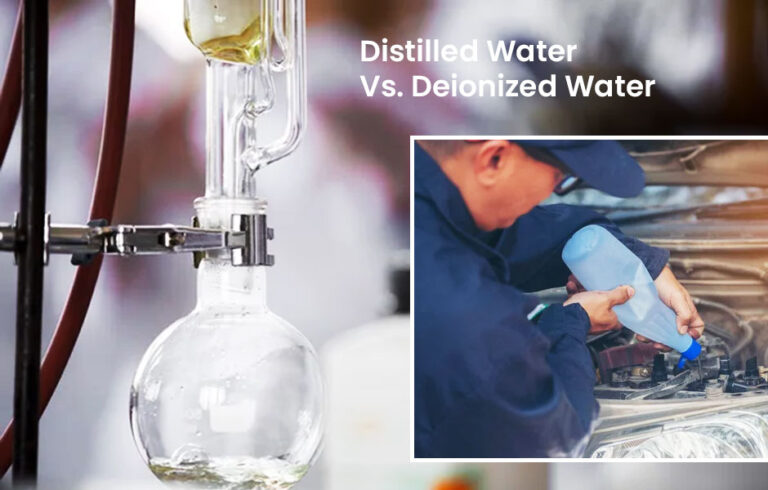If you plan to install a water softener or reverse osmosis (RO) system in your home or office, you must consider a few important factors in mind. Both methods can offer significant benefits in improving your water quality, but they work in different ways and have extra costs associated with them.
In this article, we will compare water softeners and RO systems and explain how well they can go together so you can make the best decision.
Why should we use a filtration system?
There are many reasons why you might want to install a water filtration system in your home or office. The most common reason is to improve the quality of your water.
Depending on where you live, your water supply may contain high levels of dissolved minerals, chlorine, lead, or other contaminants. These impurities can give your water an unpleasant taste or odor, and they can also cause damage to your plumbing fixtures and appliances.
Installing a water filtration system is the best way to remove these impurities from your water supply. A water softener will remove dissolved minerals, while an RO system will remove a wide range of contaminants, including dissolved minerals.
Another reason to install a water filtration system is to save money on your water bill. For example, having hard water can cause mineral deposits to build up in your plumbing fixtures and appliances. These deposits can reduce the efficiency of your fixtures and appliances and lead to higher water bills.
A water softener will remove the dissolved minerals that cause these deposits, while an RO system will also terminate a wide range of other contaminants.
Installing a water filtration system can also extend the life of your plumbing fixtures and appliances. By removing the minerals that can cause damage to your fixtures and appliances, you can help them last longer.
What is reverse osmosis water, and how does it work?
The reverse osmosis filtration system forces water through a semipermeable membrane, removing impurities and contaminants from the water and giving you clean and pure drinking water.

RO systems effectively remove a wide range of impurities, including dissolved minerals, bacteria, viruses, and organic molecules. They are often used in commercial applications, such as water bottling plants, where water purity is essential. It is also widely used in residential settings.
What is a water softener, and how does it work?
A water softener is a water filtration system that removes dissolved minerals, such as calcium, magnesium, and iron, from your water supply. These minerals cause hard water, leading to mineral deposits in your plumbing fixtures and appliances.
Water softeners work by exchanging the dissolved minerals in your water for sodium or potassium ions. This process is known as ion exchange.

There are many different water softeners on the market, but most work by exchanging positive ions in the water for negative ions. This process helps remove magnesium and calcium from the water, two of the most common minerals that can make water hard.
Benefits of each type of water system
Reverse osmosis system:
– RO systems are very effective at removing a wide range of impurities, including dissolved minerals, bacteria, viruses, and VOCs (volatile organic compounds).
– RO systems can be used in both commercial and residential settings.
Water softener:
– Water softeners can remove dissolved minerals, such as calcium, magnesium, and iron, from your water supply.
– Water softeners can extend the life of your plumbing fixtures and appliances.
– Water softeners can save you money on your water bill.
Cost and maintenance of both water systems
Reverse osmosis system:
The cost of a reverse osmosis system depends on the size of the system and the specific features that you choose. Generally speaking, however, setting up a reverse osmosis system typically costs between $200 and $1,000. For larger or more complex systems, the costs can be even higher.
Recently, there is a surge in demand for RO on monthly rental basis – where the systems are installed and maintained for free. The price starts from as low as $25 per month. This also includes annual filter change.
The maintenance costs of a reverse osmosis system are relatively low. You will need to regularly change the filters in your system and clean the permeate tank. You may also need to flush the system to periodically remove any build-up of contaminants.
Water softener:
The cost of a water softener depends on the size of the system and the specific features that you choose. Usually, a water softener can range from $300 to $3,500. The lesser priced water softeners are used and installed for POU (point of use), while the higher priced systems are considered to be installed at POE (point of entry) – typically for the whole house.
Water softeners require more maintenance than RO systems. It requires you to add salt to your water softener regularly. You will also need to descale your water softener about once a year. So, the maintenance costs of a water softener can be higher than those of an RO system.
Which system is best for you?
The reverse osmosis system is best for you if you are looking for a water filtration system that can remove a wide range of impurities, including dissolved minerals, bacteria, viruses, and organic molecules. While the water softener filtration system softens the water by removing dissolved minerals, such as calcium, magnesium, and iron, from your water supply. If you have hard water, a water softener can extend the life of your plumbing fixtures and appliances.
There are many different types of water filtration systems on the market today. Reverse osmosis (RO) systems and water softeners are two of the most popular water filtration systems.
How does water softener help the RO system?
Water softeners work by removing hardness minerals from your water supply. These minerals can cause several problems, including making it difficult to get suds when you wash dishes or laundry, leaving water spots on glasses and plates, and making it difficult to dissolve the soap. Water softeners use ion exchange to remove these minerals from your water. This process replaces the hardness minerals with harmless sodium or potassium ions.
One of the benefits of having a water softener is that it can prolong the life of your RO system. This is because the RO membranes can become clogged more quickly if high levels of hardness minerals are in the water. Removing these minerals with a water softener can help keep your RO system running smoothly and efficiently for a more extended period.
Most homes have some form of water filtration or purification system, but many do not realize that they can also benefit from a water softener. A water softener is a device that helps remove excess minerals from water, making it softer and easier on the skin and hair.
Water softeners can be used in conjunction with reverse osmosis (RO) system to improve the quality of your water further.
RO systems are designed to remove impurities from water by forcing it through a semipermeable membrane. This process eliminates up to 99% of contaminants, including bacteria and viruses.
When using an RO system with a water softener, installing the water softener before the RO unit is crucial. This ensures that the RO system is not working overtime to remove minerals that have already been softened.
Should you install both the RO system and water softener?
If you are looking for the best possible water quality for your home, we recommend installing an RO system and a water softener. This combination will remove the most comprehensive impurities, including dissolved minerals, bacteria, viruses, and organic molecules.
While both systems are effective, they work best when used together. If you have hard water, a water softener can prolong the life of your RO system by protecting the membranes from mineral build-up. Not to mention, it will also extend the life of your RO system.
Why do the reverse osmosis system and softener go well together?
There are several reasons:
- Reverse osmosis can remove impurities that water softeners cannot.
- Water softeners can help extend the life of reverse osmosis membranes.
- The two technologies can be used to treat different types of water contamination.
Reverse osmosis is often used to remove dissolved minerals, while water softeners are more effective at removing hardness minerals. By combining the two technologies, you can achieve optimal water purification.
One of the main benefits of reverse osmosis is removing impurities that water softeners cannot. In addition, water softeners can help extend the life of reverse osmosis membranes. This is because hard water can damage reverse osmosis membranes, causing them to break down over time.
Reverse osmosis and water softening are two effective water purification technologies used to achieve optimal results.
Maintaining your Reverse Osmosis system and water softener
It is vital to maintain your reverse osmosis system and a water softener to ensure they are working correctly. In addition, both systems should be regularly serviced and replaced when necessary.
It would be best if you also considered using a pre-filter with your reverse osmosis system. A pre-filter helps remove impurities from the water before it enters the RO system, which can prolong the life of your reverse osmosis system.
Also, keeping the brine tank clean and free of debris for water softeners is essential. The brine tank is where the saltwater solution is stored that is used to exchange hardness minerals for sodium ions.
Whole house water softener and reverse osmosis
Whole house water softener and reverse osmosis systems are becoming increasingly prevalent worldwide.
A whole house RO system is a type of filtration system that treats all the water coming into your home. A whole house water softener, on the other hand, is a device that is hooked up to your home’s plumbing system that is designed to remove hardness minerals from your water. This whole-house system has more advantages over under sink systems because they can last longer with less maintenance.
If you consider installing a whole-house RO system and water softener, you should consider a few things:
- You will need to have a professional install the system.
- You will need to ensure that your home’s water pressure is adequate for the system.
- You will need to replace the filters regularly.
A whole house reverse osmosis system usually costs over $2000 – depending upon your requirement, size of your home, your plumbing system and few other similar factors.
Whether you are looking for a small RO system for your kitchen sink or a large-scale RO system for your whole house, we have you covered. Contact us today to learn more about our reverse osmosis and water softener systems!
Many people choose both RO water and water softener systems to get the best possible water for their homes. However, each method has its unique benefits, and it cannot be easy to decide which one is right for you. We hope that this article has helped you better understand the pros and cons of each type of system to make an informed decision about what is best for your family.
FAQs
Does reverse osmosis help in softening of water?
No, reverse osmosis does not help in softening of water. Water softeners are more effective at removing hardness minerals. Reverse osmosis systems can remove impurities that water softeners cannot.
Will reverse osmosis remove the hardness of water?
No, reverse osmosis will not remove the hardness of the water. Water softeners are more effective at removing hardness minerals.
Is RO water the same as softened water?
No, RO water is not the same as softened water. RO water has had impurities removed from it, while softened water has had hardness minerals exchanged for sodium ions.
Do you need a water softener with reverse osmosis?
No, you do not need a water softener with reverse osmosis. However, if you have hard water, then a water softener can prolong the life of your reverse osmosis system. So, it is recommended that you use a water softener with reverse osmosis if you have hard water.
What is better reverse osmosis or a whole house water filter?
It depends on your needs. For example, if you are looking for a filtration system that will treat all the water coming into your home, then a whole house RO system is good. On the other hand, if you are only looking to filter the water from your kitchen sink, then an under-sink reverse osmosis system is a better option.
Does RO remove salt from salted water?
Yes, reverse osmosis can remove salt from salted water. However, reverse osmosis systems are not as effective at removing salt as water softeners. So, if you have hard water and are looking to remove salt from your water, then a water softener is a better option.
Conclusion
When it comes to water filtration, reverse osmosis systems and water softeners are two of the most popular options. However, which one is right for you? This article breaks down everything you need to know about reverse osmosis water and water softeners to decide which system is best for your home or office.
This article was originally published in Apr-2022 and was last updated in May-2022
Author: Mark
Category: Water Softener




